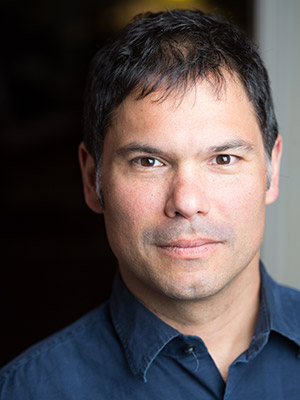Raheem on How Mississippi Moves Forward After Water Crisis
After facing their own water crisis, Jackson, Mississippi, can take a page from what occurred after the water crisis in Flint, Michigan.
“One possibly useful thing is to look at how people in Flint coordinated,” said Nejem Raheem, associate professor of economics and interim chair of the Department of Marketing Communication. “That is to say how grassroots groups, faith groups, and other members of civil society began to build trust to both work together and to better integrate folks from outside the community, like the federal government, in the effort.”

Raheem’s work includes studying the public welfare values of common-pool irrigation in New Mexico, writing about the need for leadership to combat drought, and continuing to research drought planning.
Raheem said Americans tend to ignore infrastructural investments in general, which can lead to what happened in Jackson and Flint.
“We don’t have a strong motivation toward good public health policy in general, and … in communities where folks don’t fight for what they need or don’t have influence over government decisions, people get left behind. And we need to stop that,” said Raheem.
While climate change events like the flooding made it abundantly clear that Jackson was, and is, unprepared for climate change-driven events, chronic underinvestment and shoddy planning caused the crisis.
Along with a better planning process and improved infrastructural investment, Raheem said society needs to move away from the notion that people can take care of themselves without external help.
“Overwhelmingly we know that communities of color and low-income communities in this country and around the world tend to get hit much, much harder by, well, everything. But definitely by the effects of climate change,” said Raheem. “How do we change that? It’s a long, long road. There’s probably a great deal of redesign that can happen.”
Raheem said the Inflation Reduction Act can help with planning, building, and the like, but though the legislation is a good start and driven by policy experts in the Biden administration, many of its components can be overturned.
“In my view there’s a preponderance of thinking that folks can hack this kind of thing on their own, and it’s just magical thinking,” said Raheem.
Realistically, Raheem said mapping exercises to look at floodplains and linking that to precipitation modeling and prediction, and identifying societal vulnerabilities, will help identify communities on the verge of water crises. But not everyone will support those initiatives.
“We’re at this sore point in our history where some people just refuse to accept that anything is driven by structural racism, so it can be super challenging to make any changes at all to any processes,” said Raheem. “But the truth is that many communities are just more vulnerable to this sort of thing for reasons that don’t entirely have to do with geography or climate.”
Categories